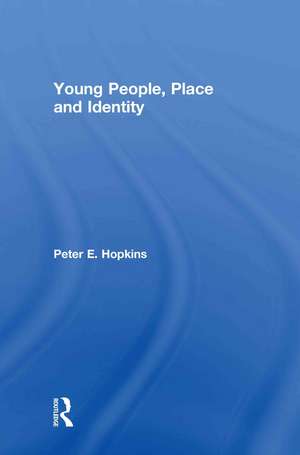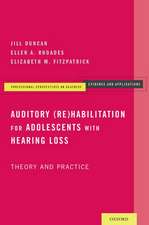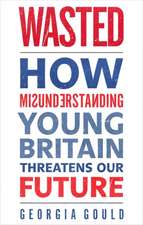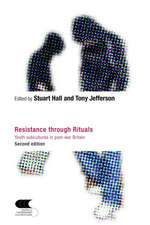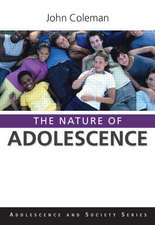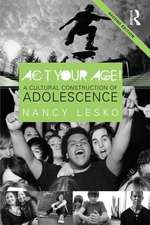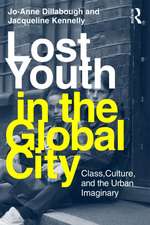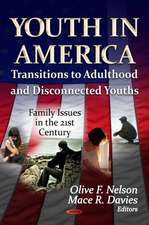Young People, Place and Identity
Autor Peter E. Hopkinsen Limba Engleză Hardback – 28 iun 2010
The textbook is one of the first books to map out the scales, themes and sites engaged with by young people on a daily basis as they construct their multiple identities. The scales explored here include the body, neighbourhood and community, mobilities and transitions and urban-rural settings and how these all shape and are shaped by young people’s identities. Each chapter explores how social identities (such as race, gender, sexuality, class, disability and religion) are constructed within particular contexts and influenced by multiple processes of inclusion and exclusion. These discussions are supported by details of the research methods and ethical issues involved in researching young people’s lives. Drawing upon research from a range of contexts, including Europe, North America and Australasia, this book demonstrates the complex ways in which young people creatively shape, contest and resist their engagements with different places and identities. The range of issues, topics and case studies explored include: ethical and methodological issues in youth research; youth subcultures; experiences of home; territorialism; youth and crime; political engagement and participation; responses to global issues; engagements with different institutional contexts; negotiating public space; the transition to adulthood; drinking cultures. The author explores these issues through blending together original empirical research, theory and policy.
Individual chapters are supported by key themes, project ideas and suggested further reading. Details of key authors, journals and research centres and organisations are also included at the end of the book. This textbook will be pertinent for undergraduate and postgraduate students and academic researchers interested in better understanding the relationships between young people, places and identities.
| Toate formatele și edițiile | Preț | Express |
|---|---|---|
| Paperback (1) | 486.32 lei 6-8 săpt. | |
| Taylor & Francis – 28 iun 2010 | 486.32 lei 6-8 săpt. | |
| Hardback (1) | 1338.02 lei 6-8 săpt. | |
| Taylor & Francis – 28 iun 2010 | 1338.02 lei 6-8 săpt. |
Preț: 1338.02 lei
Preț vechi: 1631.73 lei
-18% Nou
Puncte Express: 2007
Preț estimativ în valută:
256.02€ • 267.31$ • 211.90£
256.02€ • 267.31$ • 211.90£
Carte tipărită la comandă
Livrare economică 04-18 aprilie
Preluare comenzi: 021 569.72.76
Specificații
ISBN-13: 9780415454377
ISBN-10: 0415454379
Pagini: 328
Ilustrații: 73 b/w images, 22 halftones and 51 line drawings
Dimensiuni: 156 x 234 x 19 mm
Greutate: 0.77 kg
Ediția:New.
Editura: Taylor & Francis
Colecția Routledge
Locul publicării:Oxford, United Kingdom
ISBN-10: 0415454379
Pagini: 328
Ilustrații: 73 b/w images, 22 halftones and 51 line drawings
Dimensiuni: 156 x 234 x 19 mm
Greutate: 0.77 kg
Ediția:New.
Editura: Taylor & Francis
Colecția Routledge
Locul publicării:Oxford, United Kingdom
Public țintă
UndergraduateCuprins
Introduction Part 1: Researching Young People, Place and Identity 2. Research with Young People 3. Ethical and Methodological Considerations Part 2: Scales 4. Body 5. Home 6. Neighbourhood and Community 7. Nation 8. Global Part 3: Themes and Sites 9. Institutions 10. The Street and Public Space 11. Migration, Mobilities and Transition 12. Urban-Rural 13. Conclusion
Recenzii
"Young People, Place and Identity has bridged the scale gap in youth geographies by bringing us from localized understandings of young people to seeing the productions of youth spaces and identities across regional, national, and global lines. Hopkins' draws from his own and others' research with young people to work out youth perspectives on the construction and meanings of places such as 'home' and 'nation' with rich contextual details and stories from youth, but also links this empirical depth with significant new theoretical understandings that will push the discipline in fresh directions." Meghan Cope, University of Vermont, USA
"A much needed text which will be invaluable for both students and teachers interested in young people’s experience of identity and place. It brings a rich geographical sensibility to the study of young people’s lives and will be highly relevant across the social sciences." Elizabeth A. Gagen, University of Hull, UK
"Peter Hopkins has produced a valuable book that responds imaginatively to the rising interest amongst social scientists in questions of young people, place and identity. It is ambitious in its theoretical endeavour, broad in its geographic range and novel in its conceptual organisation. I'm sure it will appeal to social geographers and sociologists alike and the clarity of its writing and presentation will make it very popular with students." Professor Robert MacDonald, Teesside University, UK
"A much needed text which will be invaluable for both students and teachers interested in young people’s experience of identity and place. It brings a rich geographical sensibility to the study of young people’s lives and will be highly relevant across the social sciences." Elizabeth A. Gagen, University of Hull, UK
"Peter Hopkins has produced a valuable book that responds imaginatively to the rising interest amongst social scientists in questions of young people, place and identity. It is ambitious in its theoretical endeavour, broad in its geographic range and novel in its conceptual organisation. I'm sure it will appeal to social geographers and sociologists alike and the clarity of its writing and presentation will make it very popular with students." Professor Robert MacDonald, Teesside University, UK
Descriere
The textbook is one of the first books to map out the scales, themes and sites engaged with by young people on a daily basis as they construct their multiple identities. The scales explored here include the body, neighbourhood and community, mobilities and transitions and urban-rural settings and how these all shape and are shaped by young people’s identities. Each chapter explores how social identities (such as race, gender, sexuality, class, disability and religion) are constructed within particular contexts and influenced by multiple processes of inclusion and exclusion. These discussions are supported by details of the research methods and ethical issues involved in researching young people’s lives. Drawing upon research from a range of contexts, including Europe, North America and Australasia, this book demonstrates the complex ways in which young people creatively shape, contest and resist their engagements with different places and identities. The range of issues, topics and case studies explored include: ethical and methodological issues in youth research; youth subcultures; experiences of home; territorialism; youth and crime; political engagement and participation; responses to global issues; engagements with different institutional contexts; negotiating public space; the transition to adulthood and drinking cultures. The author explores these issues through blending together original empirical research, theory and policy.
Individual chapters are supported by key themes, project ideas and suggested further reading. Details of key authors, journals and research centres and organizations are also included at the end of the book. This textbook will be pertinent for undergraduate and postgraduate students and academic researchers interested in better understanding the relationships between young people, places and identities.
Individual chapters are supported by key themes, project ideas and suggested further reading. Details of key authors, journals and research centres and organizations are also included at the end of the book. This textbook will be pertinent for undergraduate and postgraduate students and academic researchers interested in better understanding the relationships between young people, places and identities.
